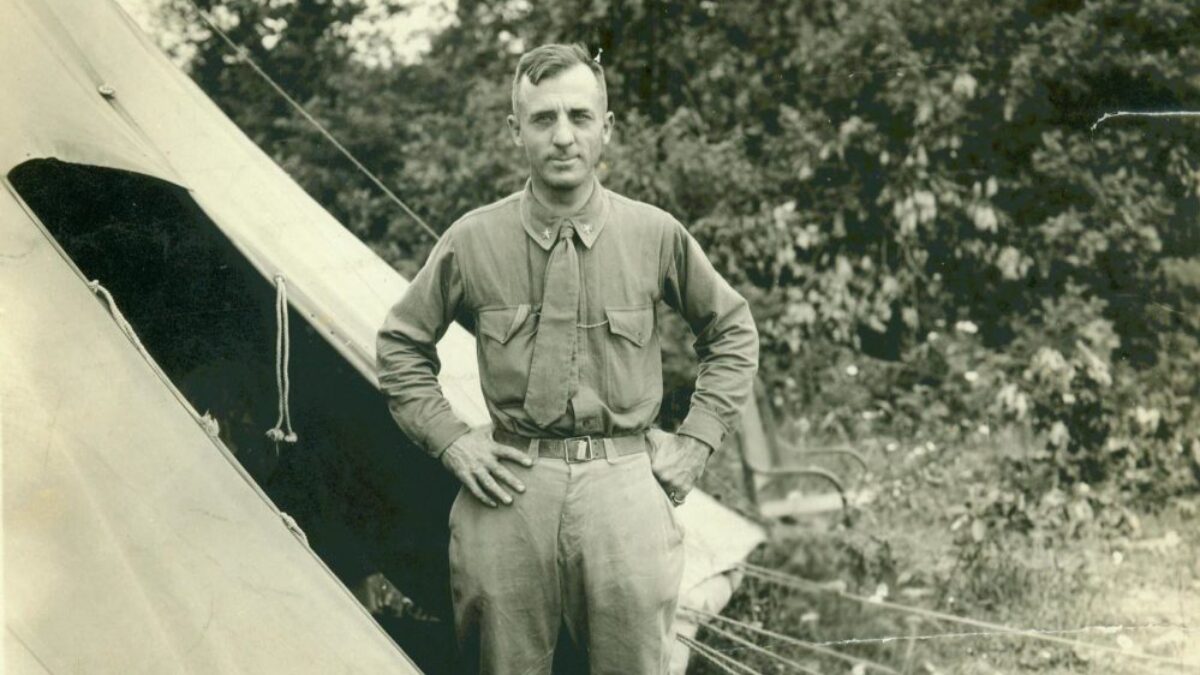
In his January 1961 farewell address to the nation, President Dwight Eisenhower bequeathed to us phrase still used today. He labeled the Cold War “conjunction of an immense military establishment and a large arms industry” as “the military-industrial complex.”
This nexus was “new in the American experience” and if unchecked, Eisenhower believed it was a threat to democracy. He called on citizens “to guard against the acquisition of unwarranted influence, whether sought or unsought, by the military-industrial complex.”
The subject of Jonathan M. Katz’s immensely readable “Gangsters of Capitalism,” Marine Maj. Gen. Smedley Butler, experienced the same late-age crisis of conscience, regretting, from the closeness of death, what he had nourished.
Butler, a two-time Medal of Honor winner (one of only five men to receive it twice), is used by Katz to fill in the “blank space” that is Americans’ understanding of their country’s imperialism “in the Caribbean or Latin America or Asia.” From this he attempts to connect the dots to the Donald Trump presidency and the movement that the former president supposedly spawned — a movement Katz declares is “firmly rooted in America’s past” and a “product of the greed, bigotry, and denialism that was woven into the structure of U.S. global supremacy from the beginning.”
Butler’s Beginnings
Katz skillfully shows that in American imperialist ventures, Butler, always the marine, was front and center. Katz begins the narrative with the teenage Butler, caught up in the war fever of the 1898 Spanish-American War, enlisting in the fight.
By the early 20th century, Butler was part of the occupying force in the Philippines, which Katz pithily dubs America’s “first Asian quagmire.” By 1902, he was part of the military protection of the Panama Canal. Twelve years later, Butler was a spy in Mexico, aiding the U.S. “invasion” of Veracruz.
It was during his work as a military occupier and head of the police of Haiti from 1915 to 1934 that Butler’s imperialistic tendencies went into high gear. Butler dissolved the Haitian parliament and reinstated slavery for the building of roads.
At the Forefront of Dollar Diplomacy
Butler was also beginning to register an uncomfortable awareness that he was not aiding his country but Wall Street. To his parents during his military efforts to overthrow the home-grown Nicaraguan government, he wrote: “What makes me mad is that the whole revolution is financed by Americans who have wildcat investments down here and want to make them good by putting in a government which will declare a monopoly in their favor.”
Nevertheless, Butler continued to be, in the words of Katz, at the “forefront of dollar diplomacy,” and even pioneered the counterinsurgency techniques that would later be employed in Vietnam. It is difficult to pinpoint when Butler took a hard left, but by 1936 he was no longer even a Republican, voting for Norman Thomas, the Socialist Party presidential candidate, and was a member of the communist-controlled American League Against War and Fascism.
Butler is best remembered for his testimony to Congress in 1934 about his insider knowledge of a plot by outraged industrialists to overthrow Franklin D. Roosevelt because of the president’s “socialist tendencies.” On this matter, in which Butler claimed to have been approached by industrialists to lead the coup (in a Mussolini-style march of veterans on the White House), Katz is remarkably level-headed.
He notes that Congress concluded “no evidence was presented … to show a connection” from the alleged plotters to “any fascist activity of any European country” and even allows that some of the accused were honest in their denials. Katz even concedes that “in the absence of a full investigation” it is “difficult to say” whether there was a planned coup.
Katz is at his best when he shows what he calls “the paper divide” between “outright fascism” and “the American elite.” He details how American corporations remained in Germany after Adolf Hitler took power and engaged in profitable relations with the dictator even when it was apparent Hitler was re-arming for war.
Butler’s Blemishes
But he ignores Butler’s blemishes. George Orwell once said Jack London could understand fascism because he had a streak of it himself, and this same tendency was present in Butler. During his time as Philadelphia’s director of public safety in the 1920s, he installed military-style checkpoints that outraged citizens. He revealed a bloodthirstiness when he promised to promote the first Philadelphia police officer to murder a criminal.
Nor does Katz acknowledge that Butler’s refusal to support any military buildup, even when Hitler had all of Western Europe in his grip, was ill-timed and potentially disastrous for American democracy. Katz assures readers that had Butler lived beyond 1940, he would have supported American efforts in World War II. But that is flimsy conjecture at best.
What Katz regards as heroic stubbornness on Butler’s part can also be read as something not being quite right mentally with Butler. The mark of intellectual maturity is the ability to entertain the possibility that one could be wrong, and even bluff imperialists like Winston Churchill courted flexibility (“I’d rather be right than consistent”). Butler’s inability to transcend his knee-jerk imperialism was almost neurotic in its intensity.
Katz acknowledges that Butler suffered from Post-Traumatic Stress Disorder, but his fellow military officers considered his mentality “unreliable” and because of that refused to give him a combat command in World War I. The target of the plot he supposedly exposed, FDR, was robotically dismissed by Butler as a tool of Wall Street, and Butler used war-like rhetoric regarding big business: “I believe in taking Wall Street by force and shaking it up.”
When he keeps his anti-Trump emotions and motivations in check, Katz soars. It is only when he succumbs to the same knee-jerk judgments of his hero that the author falters.









